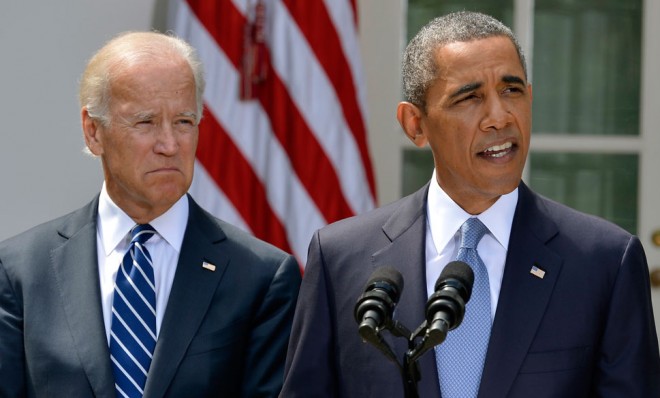Obama goes to Congress on Syria: Big mistake
President Obama has substituted good politics for good policy

A free daily email with the biggest news stories of the day – and the best features from TheWeek.com
You are now subscribed
Your newsletter sign-up was successful
On its face, it might seem like a good idea to ask Congress for permission to strike Syria over Bashar al-Assad's reported use of chemical weapons on his own people. It's not. Here's why:
1. It's legally unnecessary
As President Obama well knows, he's comfortably within his authority to take unilateral action against Assad. There's no evidence to suggest that American forces would be employed for more than 60 days, the War Powers Resolution time-cap for actions that aren't congressionally authorized.
The Week
Escape your echo chamber. Get the facts behind the news, plus analysis from multiple perspectives.

Sign up for The Week's Free Newsletters
From our morning news briefing to a weekly Good News Newsletter, get the best of The Week delivered directly to your inbox.
From our morning news briefing to a weekly Good News Newsletter, get the best of The Week delivered directly to your inbox.
The legal precedent is also unambiguous.
In August 1998, following al Qaeda bombings in Africa, President Clinton ordered missile strikes against Afghanistan and Sudan. No congressional authorization was received.
In March 1999, in a humanitarian operation that faced significant opposition in Congress, Clinton intervened in the Kosovo War. No congressional authorization was received. Incidentally, this engagement lasted over 60 days. Is Clinton a war criminal?
In 2008, shortly before leaving office, President Bush ordered an attack against a suspected terrorist hideout in Syria. Again, he did so without congressional authorization.
A free daily email with the biggest news stories of the day – and the best features from TheWeek.com
In 2011, in Libya, Obama ignored Congress. He was criticized, but the blowback was relatively minimal.
So why does this Syria strike demand a congressional blessing?
2. It sets a dangerous precedent
Obama has just qualified the military authority of his office. This is seriously problematic.
True, in any democracy, scrutiny of military operations is critical (as is legislative approval for major actions like those in Afghanistan and Iraq). Nevertheless, when it comes to the limited use of force, there's an unassailable rationale for robust executive authority.
In moments of crisis, military authority must avoid the polluting influence of partisan gamesmanship. Today's House and Senate aren't exactly citadels of Jeffersonian governing virtue. Often, though admittedly not always, Congress is home to narrowly opportunistic antics. It is a house both divided and angry. It's no place for crisis management. As the founders warranted and today reaffirms, American foreign policy cannot function with 536 commanders-in-chief.
3. It reeks of weakness
Obama's "red line" was a contract with Assad. Its format was clear and its terms were unequivocal. If Assad used chemical weapons, America would respond with military force. The president laid down his marker.
Then he wavered. After ignoring numerous atrocities, only when the scale of the recent slaughter in Ghouta became clear did Obama finally respond. His uncomfortable reluctance was and remains abundantly obvious.
But by going to Congress, by again hedging on his red line, Obama has trumpeted his hesitancy to the world.
Now, close American allies like Israel, Jordan, and Saudi Arabia will ask themselves, "Can we rely upon America? Should we believe in American undertakings?"
For the Iranians, Russians, and Assad, Obama's hesitation reinforces a darker idea: "We've successfully deterred American power. Our malfeasance has no price."
You can bet that Kim Jong-un is taking notes. The Taliban, too.
By going to Congress, Obama might have placated his domestic critics, but he's weakened his office and he's endangered American interests. And let's be honest: Proponents of Congressional authorization are banking that, like the British Parliament, Congress will reflect their opposition (and popular concerns) by rejecting intervention. Correspondingly, they hope to offer Obama a "democratic" ladder to escape his "red line" and avoid having to use force.
It might be majestic political calculation, but this is terrible foreign policy.
Tom Rogan is a conservative writer who blogs at TomRoganThinks.com.